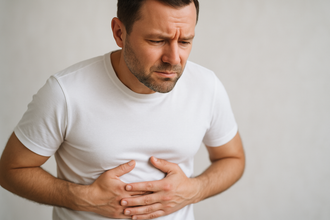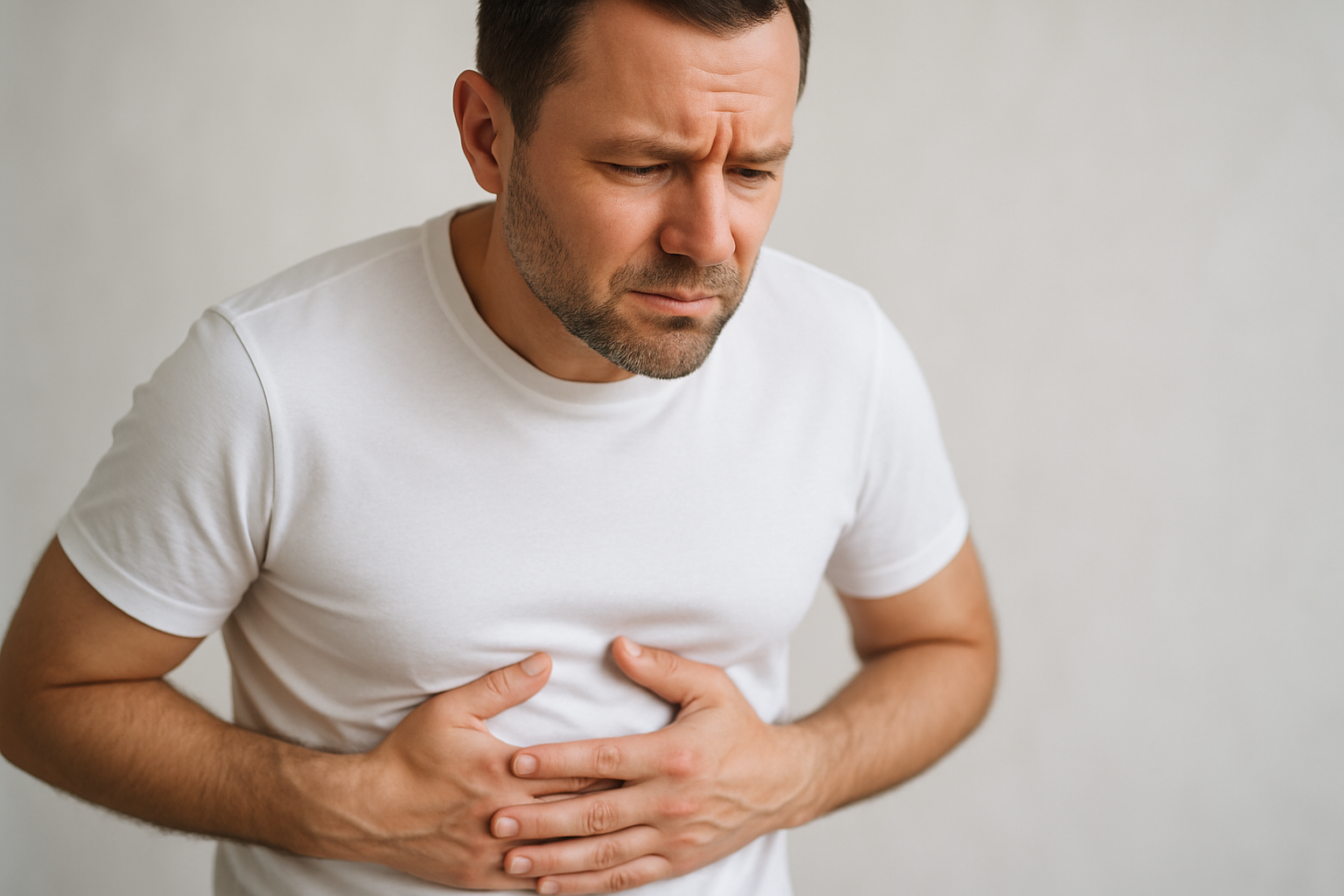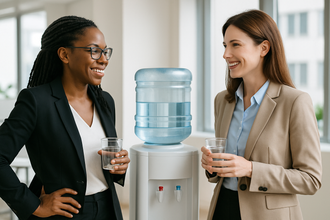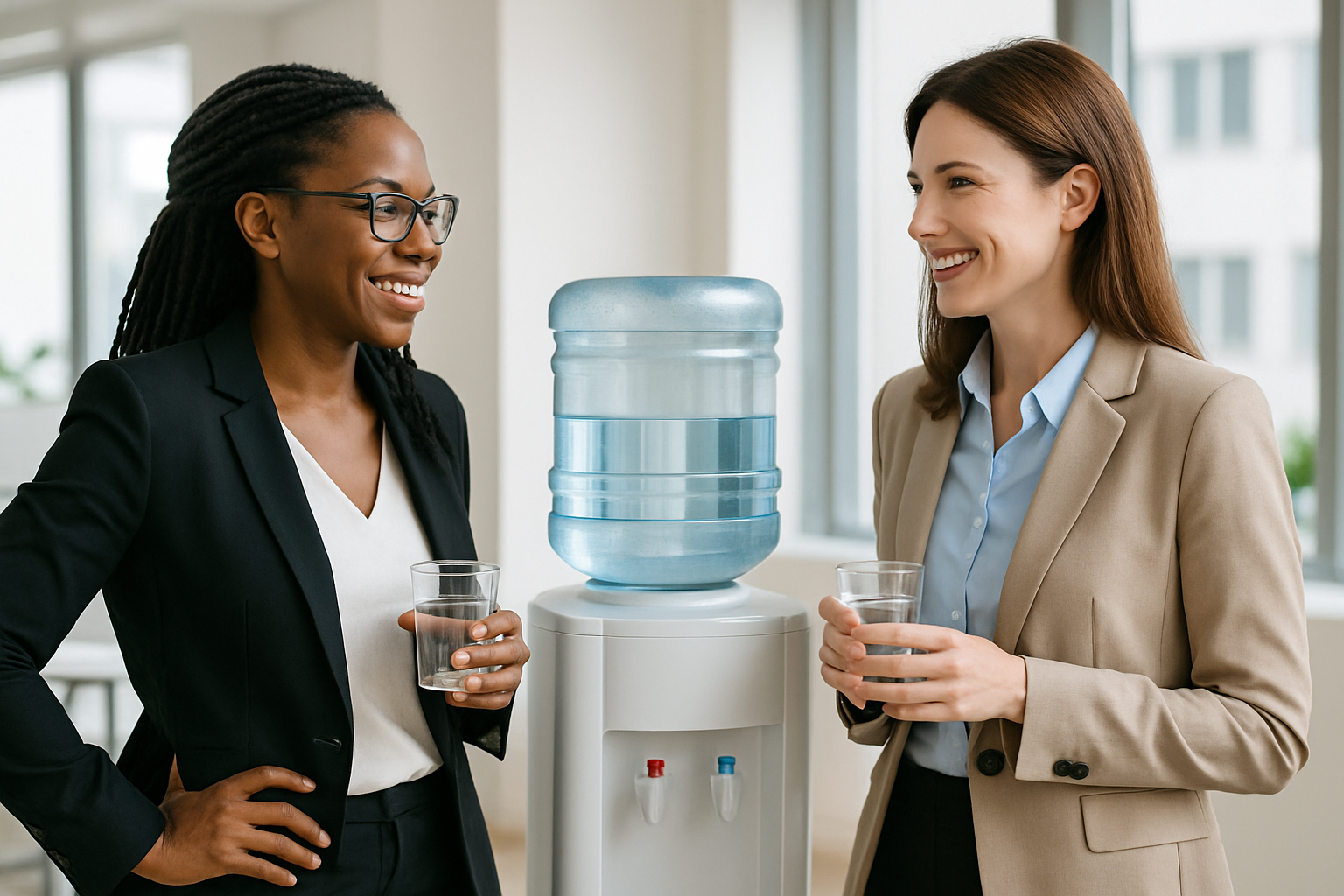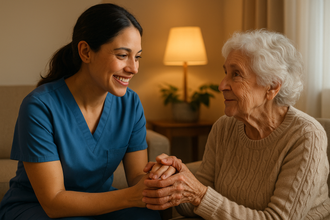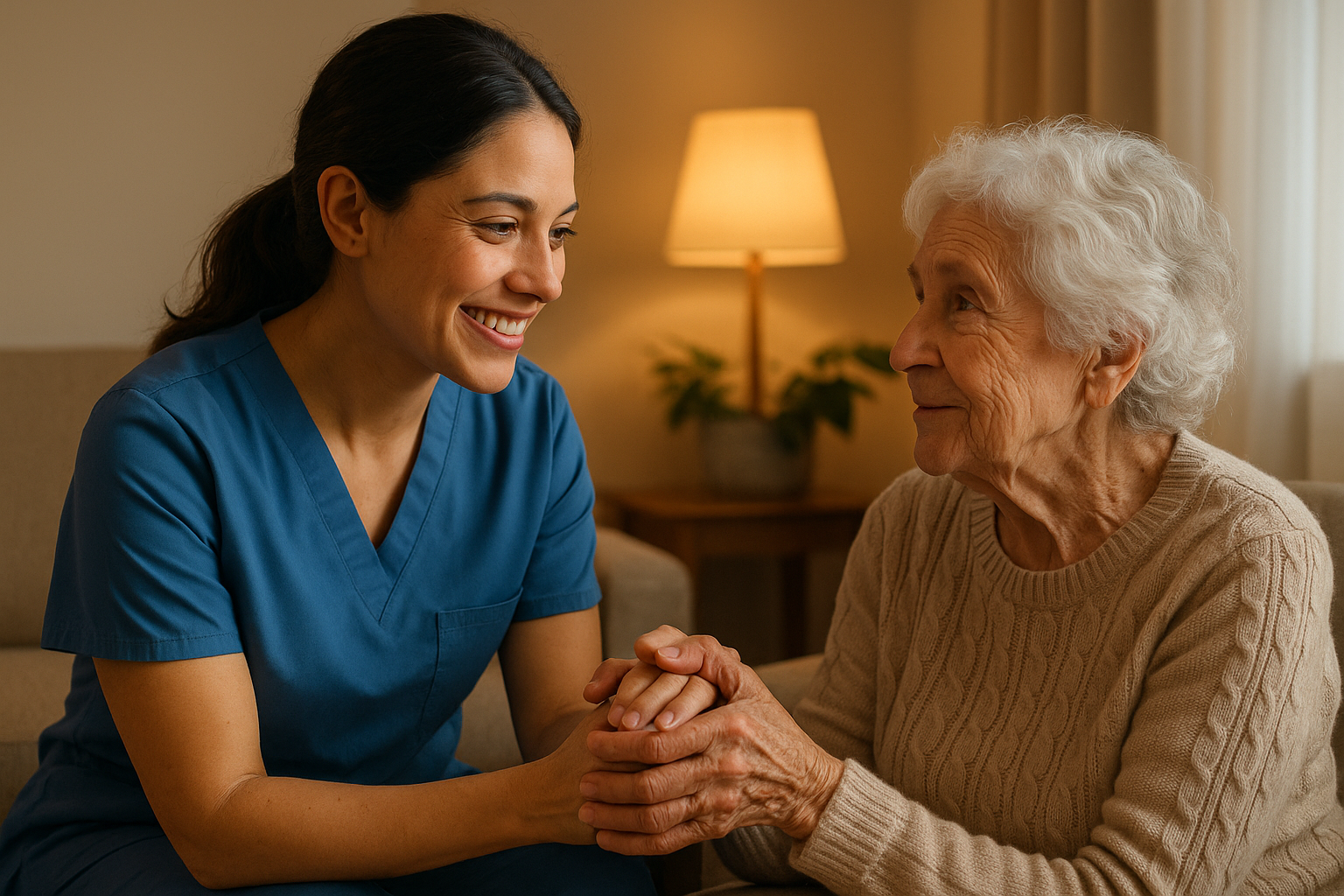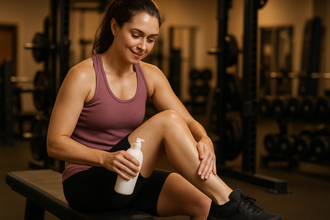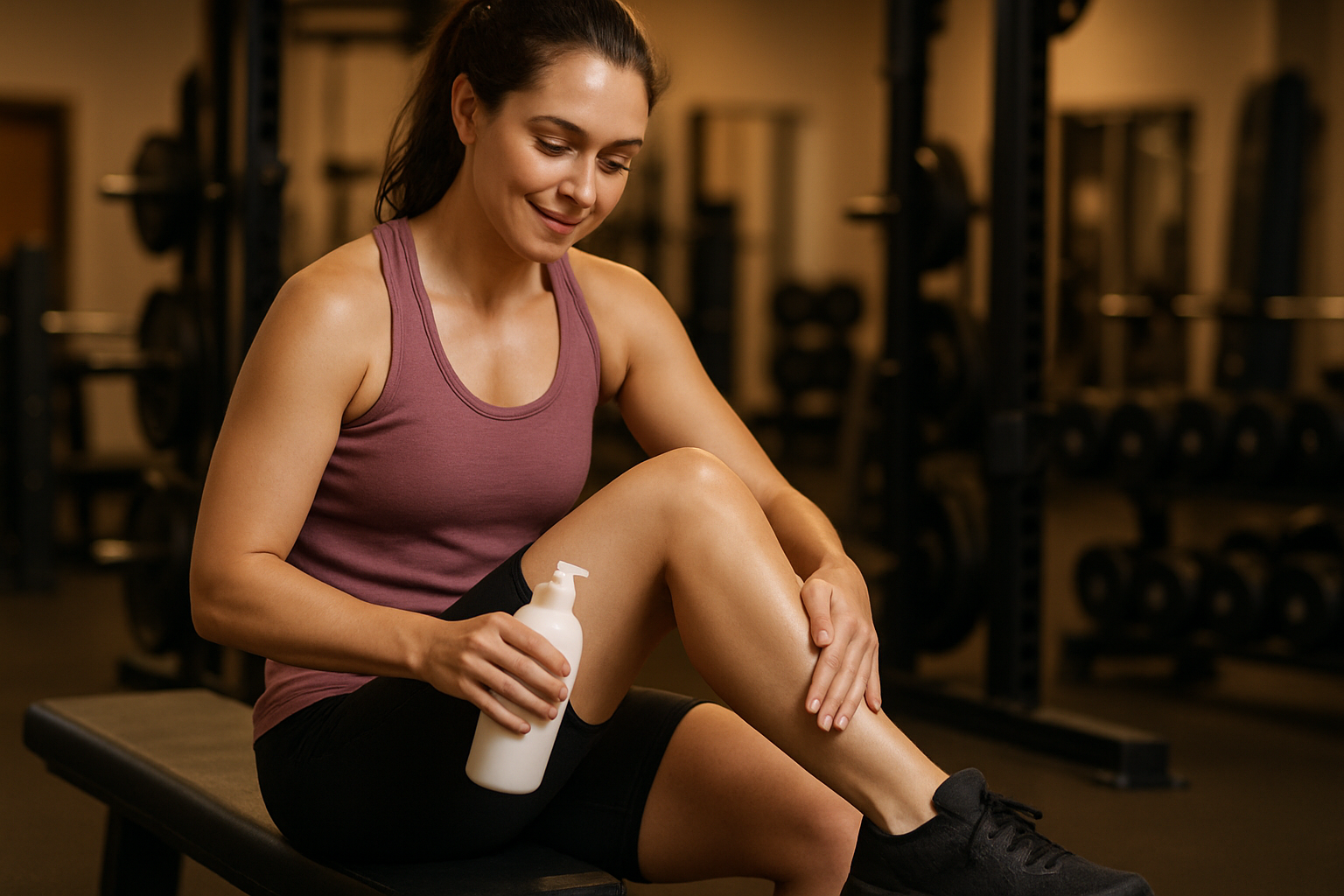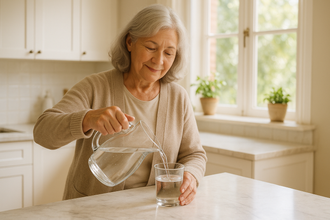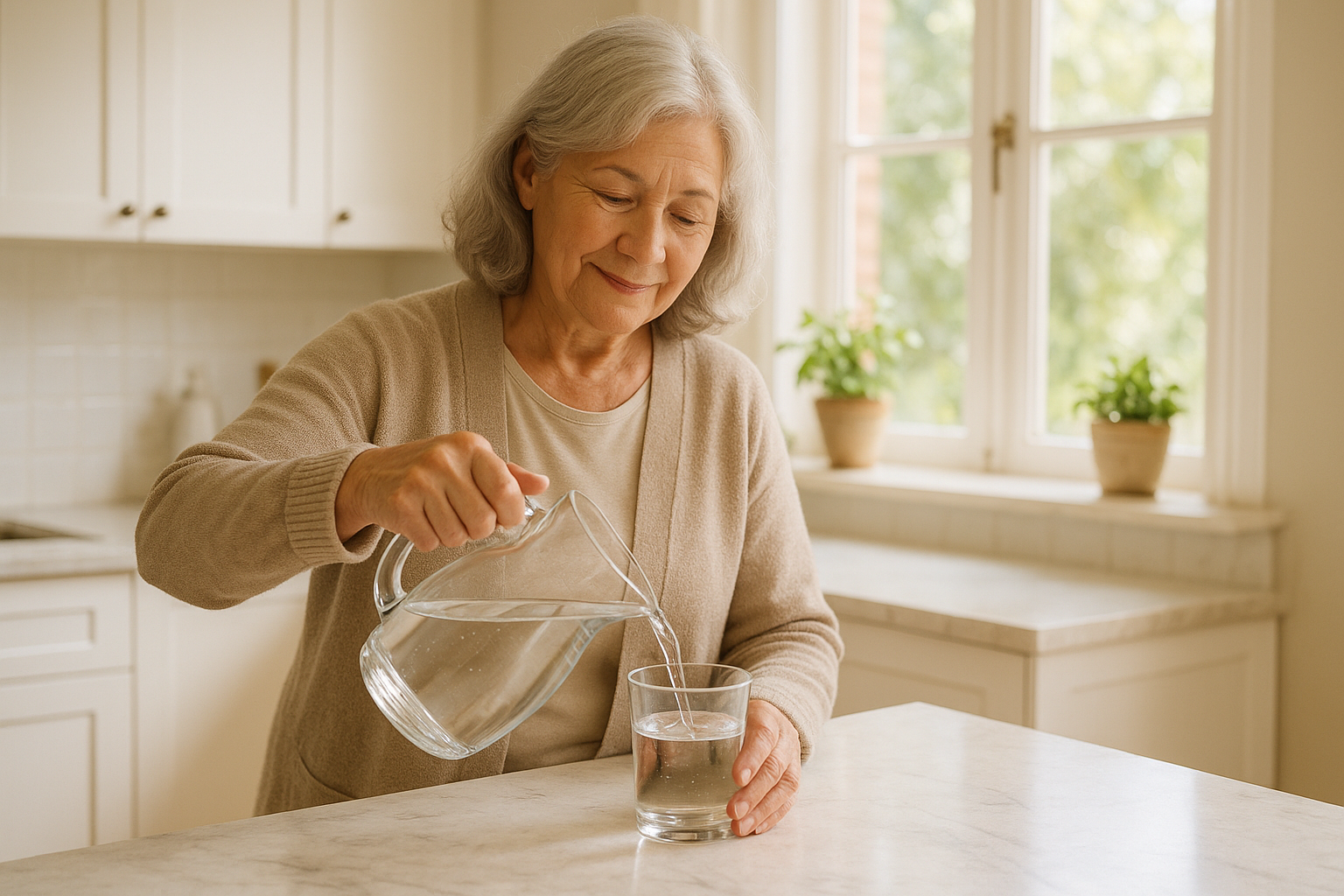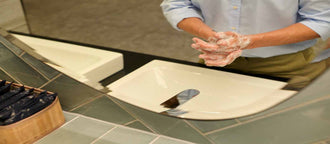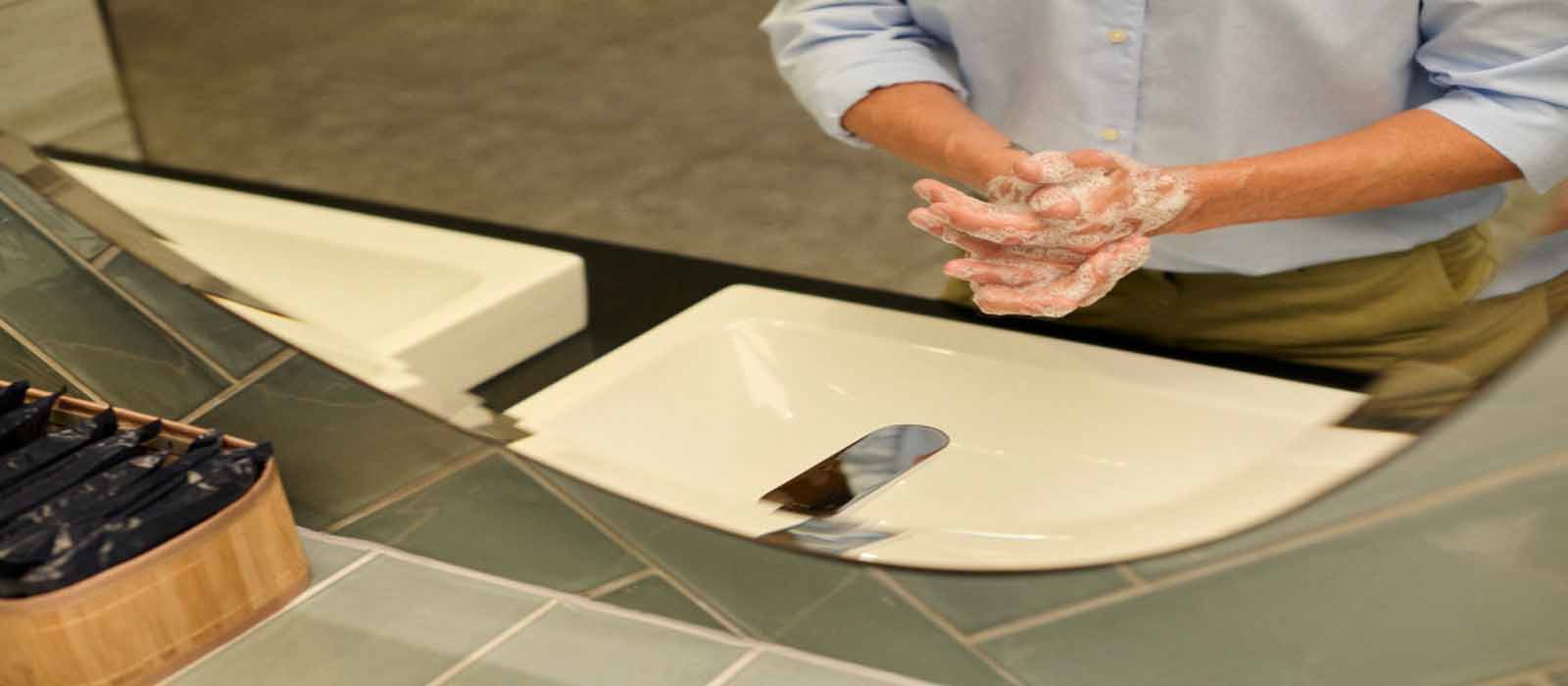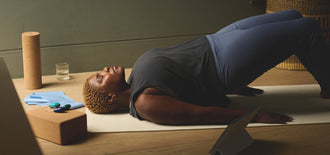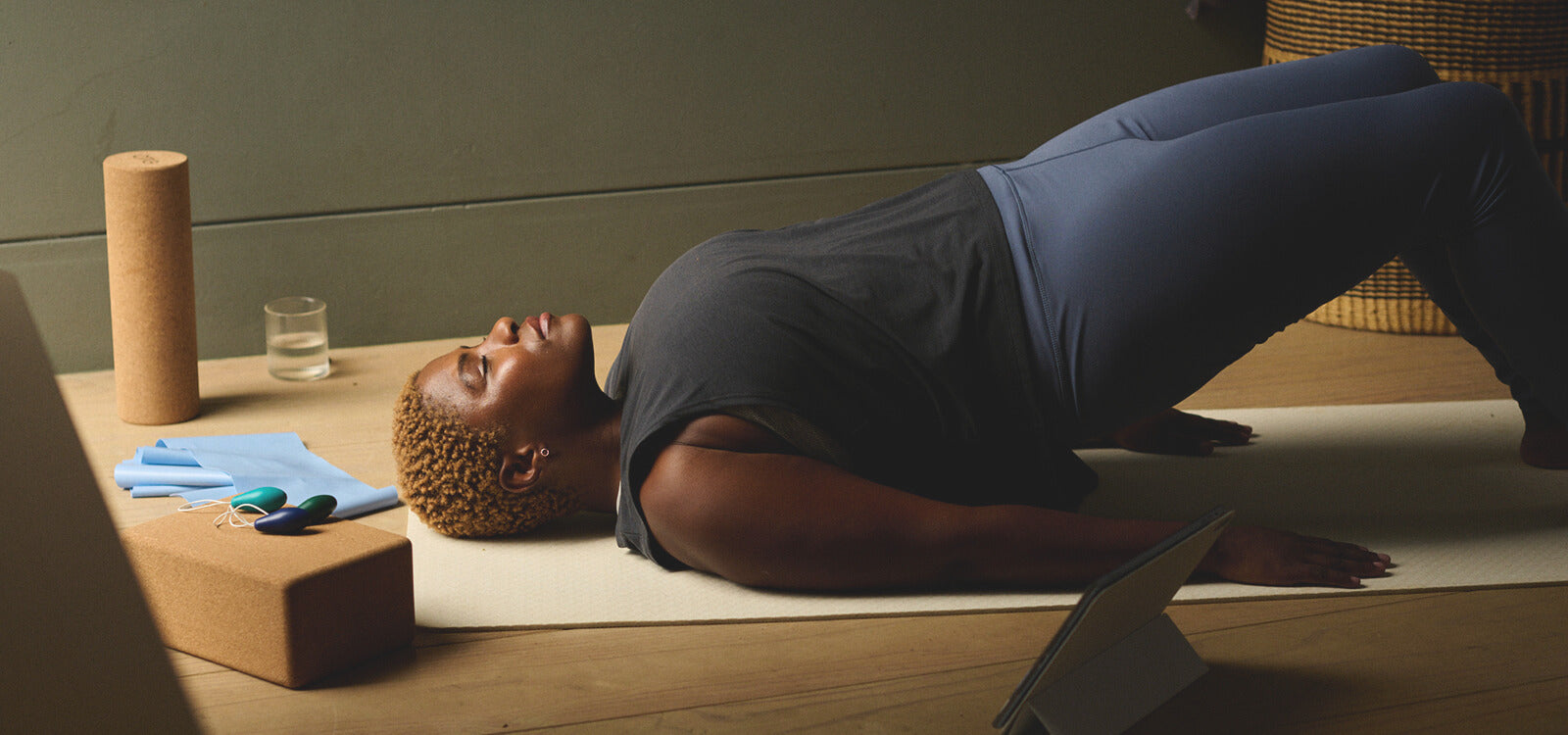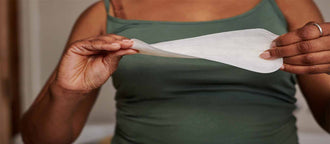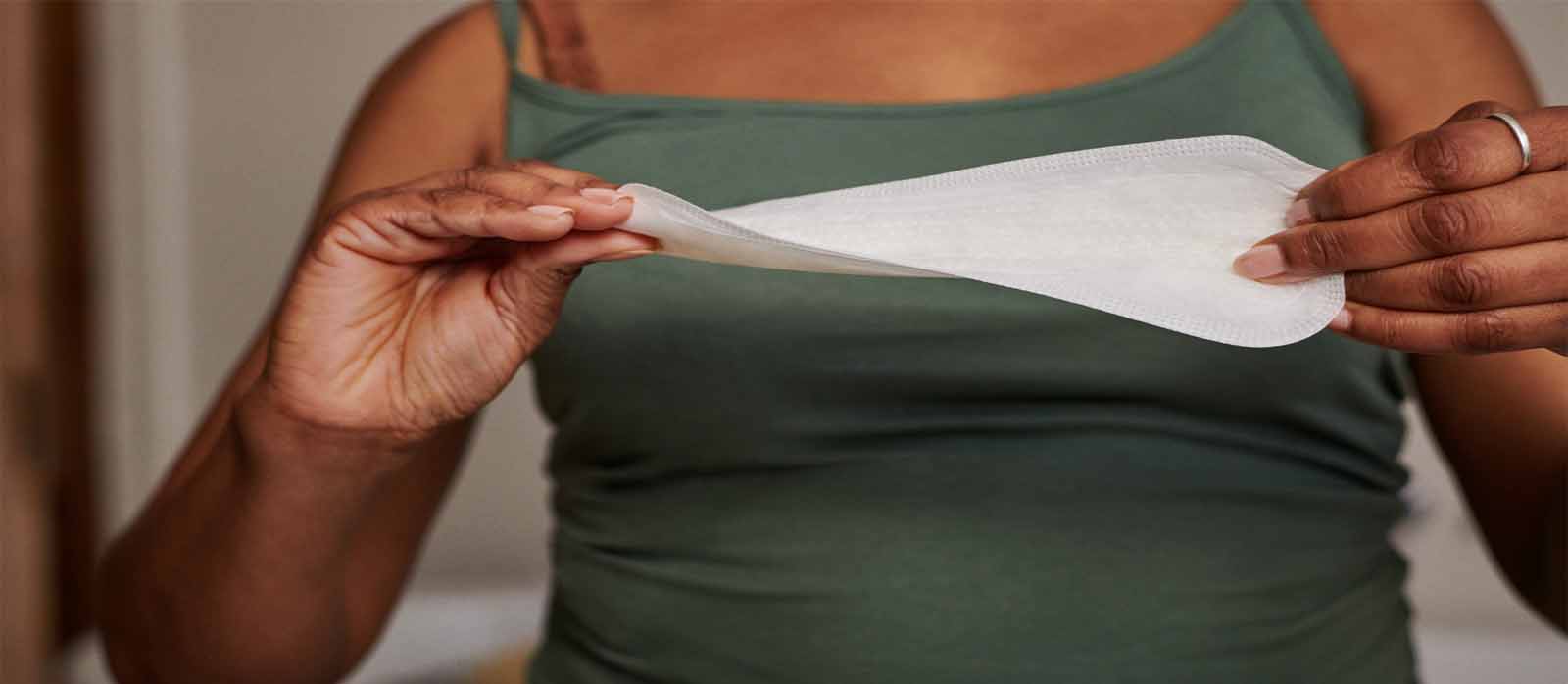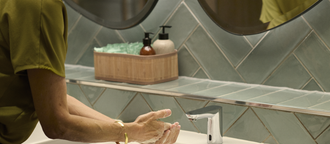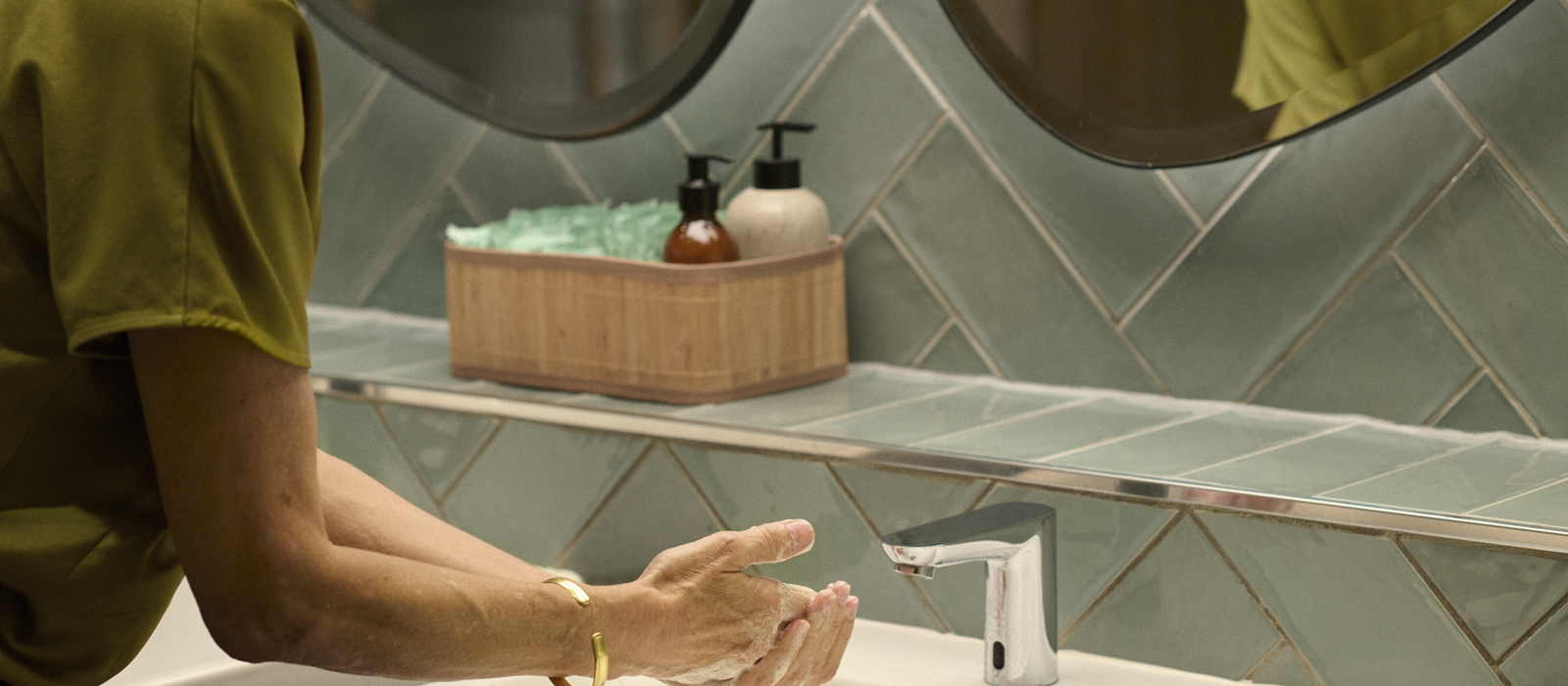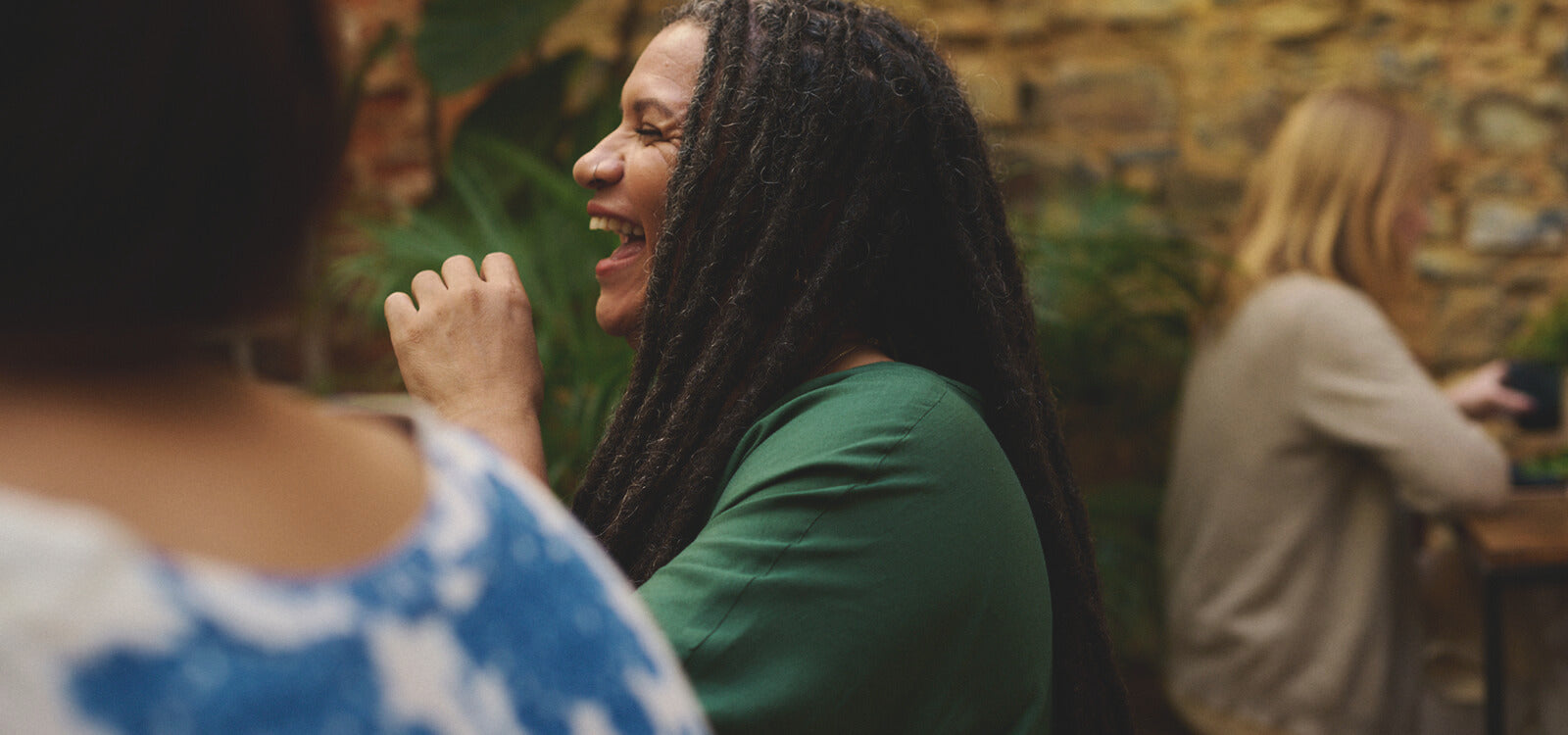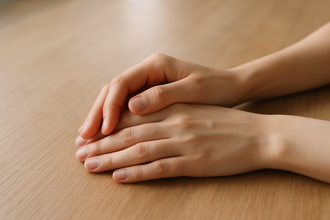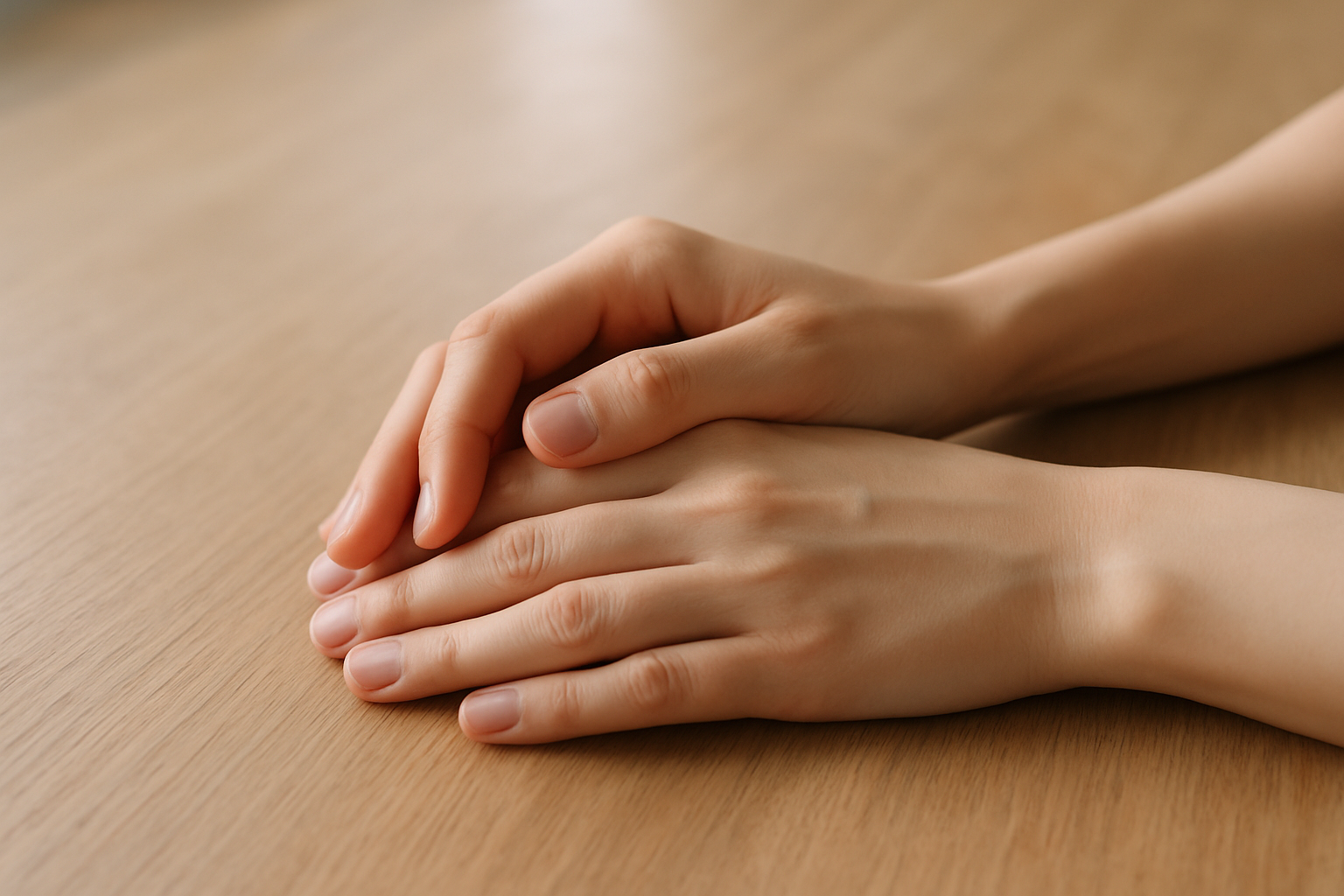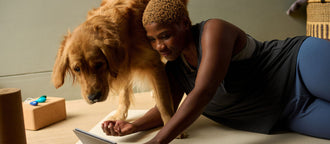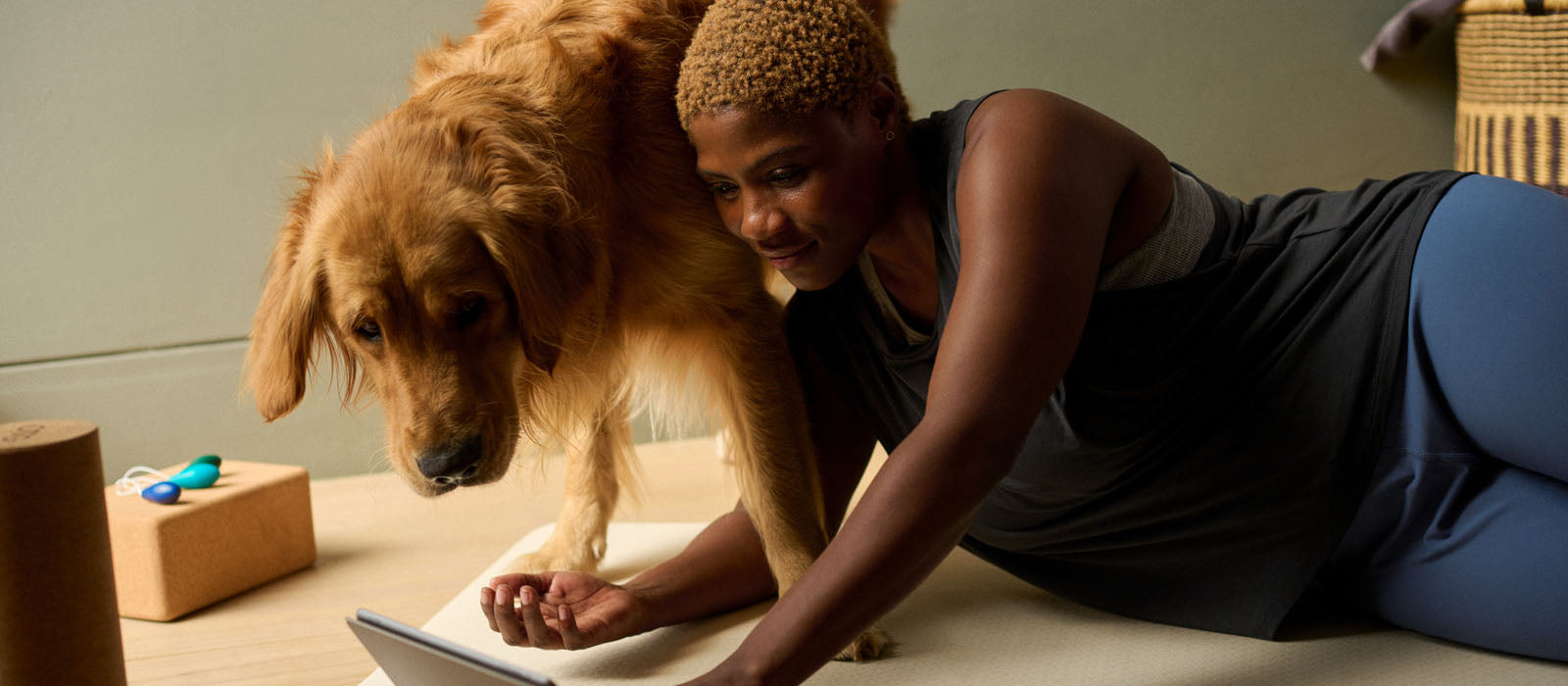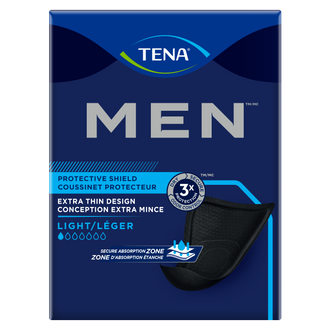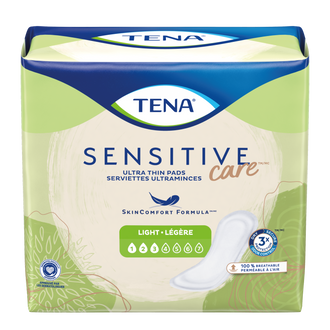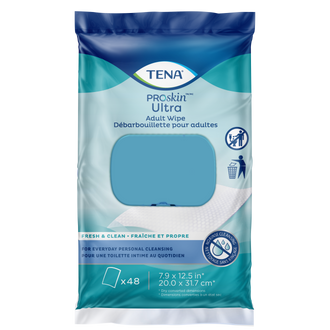Aug 05, 2025
When you have a leaky accident, you may start to wonder: "What's causing these bladder leaks? Is it me? Is it something I ate or drank?"
Know that you're not alone. Incontinence affects millions of Americans, and there are several types, causes, and triggers.1 Let's break it down together.
The Types of Urinary Incontinence
Each type of urinary incontinence or bladder leak has its own causes and treatments.1 That's why understanding what you are experiencing matters. Let's look at the types of bladder leaks and what causes them:
Stress-Related Incontinence
In stress incontinence, leaks occur due to weak pelvic floor muscles, or when there’s extra pressure on your bladder.1 It happens more often among women because of pregnancy and childbirth.1,2 Other factors that can weaken your pelvic floor muscles and tissues include:
- Being overweight or obese1
- Neurological conditions1
- Some medications1
- Menopause1
- Prostate surgery (a common cause for men)1,2
When your pelvic floor is weakened, everyday actions like the ones below can cause unexpected leaks:1
- Exercising
- Laughing
- Sneezing
- Coughing
Urge Incontinence (Sudden Need to Go)
If you feel a sudden, intense urge to pee but don’t make it to the bathroom in time, it may be urge incontinence, also known as overactive bladder.1 It affects both sexes, but it is more common among women and older adults.3
The following are reasons why you may be experiencing urge incontinence:
- Bladder nerve damage1
- Nervous system damage1
- Pelvic muscle damage1
- Menopause1
- Medications such as diuretics3
Overflow Incontinence
Imagine a sink with a plug in while the tap is running; water keeps filling up, and once it reaches the top, it spills over. Like the sink, if your bladder doesn’t empty fully, it can overflow and leak.1
Overflow incontinence affects men more often due to the following issues:2
- Narrowed urethra
- Enlarged prostate
- Weakened pelvic muscles
- Other reasons for overflow incontinence may include:1
- Nerve damage
- Tumors
- Constipation
- Certain medications
Mixed Incontinence
Mixed incontinence is a combination of stress and urge incontinence.1 It is especially common among older women (65 years and older).4
Some factors that can increase the risk of mixed incontinence include: 4
- Multiple pregnancies
- Obesity
- Pelvic surgeries
- Smoking
- Recurrent UTIs
Short-Term Causes of Incontinence
Not all incontinence is permanent.5 Some cases are temporary and could be caused by following:
Urinary Tract Infections (UTIs)
Urinary tract infections (UTIs) can lead to temporary incontinence.5 In women, the risk of UTIs triggering bladder leaks is higher.6 When a UTI irritates and inflames the bladder lining,6 it can cause a strong and frequent urge to pee.7
Constipation and Bladder Pressure
This temporary cause of incontinence happens when constipation causes a buildup of stool.8 The buildup puts pressure on your bladder and narrows your urethra, leading to urgency and leaks.8
The Impact of Alcohol
Alcohol doesn’t directly cause incontinence, but it can make symptoms worse.9 It affects your body in a few ways:
- It acts as a diuretic, making you pee more often9
- It irritates the bladder lining, causing urgent and frequent urination10
The Effects of Caffeine
Caffeine acts as a stimulant, diuretic, and irritant in several ways that can affect your bladder:11
- It causes you to pee more often.
- It irritates the lining of your bladder, leading to increased urgency and frequency.
- It stimulates your bladder muscles to contract more strongly, making the urge to go stronger.
Fizzy Drinks and Bladder Irritation
Fizzy or carbonated drinks, like sodas, can irritate the bladder lining.12 Their acidity may increase the urgent and frequent need to pee. 13
Artificial Sweeteners and Incontinence
Artificial sweeteners can affect both your urinary tract and bladder muscles.14 While research is limited, one study found that women who drink artificially sweetened beverages daily or more have a 10% higher risk of mixed incontinence.14
More studies are needed to confirm the link, but cutting back might help; especially since sweeteners like aspartame, sucralose, and saccharin can irritate the bladder.12
Chocolate as a Bladder Trigger
Dark chocolate can be a bladder irritant due to its acidity and caffeine content.12 If you're craving something sweet, white chocolate might be a gentler choice; it has little to no caffeine and may be easier on your bladder.15
Spicy Foods (Including Chilies)
Spicy foods, like hot sauce, chilies, and pepper, can irritate the bladder lining in some people.12 This irritation may lead to more frequent and urgent trips to the bathroom.12
Foods High in Sugar or Acid
Both acidic and high-sugar diets can affect your bladder.15,16 Acidic foods, like tomatoes or citrus, may cause bladder irritations.15,16 At the same time, a high-sugar diet can stimulate the bladder, leading to leaks and urgency.16 Over time, a high-sugar diet may also contribute to conditions like diabetes, which can increase the risk of incontinence.16
Side Effects of Certain Medications
Some medications can cause or worsen incontinence such as diuretics, muscle relaxants, and antihistamines.17
You should speak with your doctor first before stopping or changing any medications. It is also a good idea to always read the package insert to familiarize yourself with any possible side effects and talk to a medical professional if you are experiencing any.
Learn more about the best and worst foods for you when have an overactive bladder.
Long-Term (Persistent) Urinary Incontinence
For some people, incontinence is linked to chronic or ongoing health conditions. Some common ones are:
Enlarged Prostate in Men
An enlarged prostate causes an overactive bladder, which can lead to bladder leaks in men.18 This overactivity causes a sudden, urgent need to urinate, sometimes resulting in leaks before you reach the bathroom.18
Prostate Cancer and Treatment Effects
Stress incontinence is common in men who have had prostate cancer treatment.19 Incontinence after prostate surgery occurs due to bladder nerve damage, while radiation therapy may reduce bladder capacity.19
Urinary Obstructions (Stones or Tumors)
Kidney stones, bladder stones, or tumors near the bladder can block urine flow.20,21 They create a pressure can lead to:
- Urgency and frequent trips to the bathroom, in the case of kidney stones 20
- Bladder leaks for both kidney stones and tumors20,22.
Neurological Conditions Affecting Bladder Control
Neurological disorders can affect the way your brain and nerves communicate with the bladder,23 resulting in a condition known as neurogenic bladder.24 This means that your bladder muscles may not function properly, causing unexpected leaks.23
Some neurological conditions that could affect your bladder control include:24
- Parkinson's disease
- Multiple sclerosis
- Stroke
- Spinal Injury
Pregnancy and Bladder Pressure
Pregnancy could lead to stress incontinence during and after childbirth.25 Bladder leakage during pregnancy could be due to the following:26
- The pressure of the growing baby or uterus on your bladder.
- Changing hormone levels that affect your bladder and urethra lining.
- Incomplete UTI treatments before pregnancy.
Childbirth-Related Pelvic Floor Damage
During vaginal delivery, the head of the baby puts pressure on your support system for bladder function:27
- Pelvic muscles
- Bladder nerves.
This pressure weakens or damages these structures, leading to postpartum incontinence later in life if full control isn’t regained.27 Fortunately, most women recover bladder control within two months, or even sooner after childbirth.27
Age-Related Changes in Bladder Function
As you age, you may notice more frequent trips to the bathroom or occasional leaks.28 This may happen for two reasons:28
- The pelvic floor muscles naturally weaken over time
- Your bladder capacity is becoming smaller
The good news is these symptoms of incontinence are manageable, starting with a conversation with your doctor.28
Menopause and Hormonal Changes
Incontinence can occur before, during, and after menopause because of declining estrogen levels.29 As the hormone levels drop, the bladder and urethra function reduces, and the pelvic muscles weaken.29 These changes make it harder to control urination, leading to leaks.29 Over time, as the drop continues, bladder leaks worsen.29
Managing Urinary Incontinence
Strengthening Pelvic Floor Muscles for Better Control
Pelvic floor exercises, also known as Kegels, can help manage both stress and urge incontinence.30 They strengthen the muscles that support your bladder, improving control.30 It's best to do these exercises with guidance from a healthcare professional.
Using Absorbent Pads and Products
Now that you know what could be behind your bladder leaks, it’s time to choose the right absorbent products. The following options can help you stay comfortable and confident during your daily activities:
- Incontinence guards
- Incontinence pads
- Incontinence pants
Each one of these is designed to meet different needs. Here are some helpful guides to support your choice:
Products for Men
Men’s incontinence products are designed specifically for the male anatomy in order to provide a secure and comfortable fit. You can choose the product that suits your lifestyle and level of dribble best:
- Male Guards: Slim, discreet, lightly absorbent for minor leaks.
- Male Shields: Offer extra protection with a comfortable, low-bulk fit.
- Protective Underwear: High absorbency with regular underwear looks and feel.
Here are some helpful guides for men to help you choose the right incontinence product and how to use it too:
Products for Women
Women’s products are shaped for body contours, offering tailored protection. You can choose the right product for you based on your needs:
- Bladder Control Pads: Secure and absorbent for moderate to heavy leaks.
- Protective Underwear: Underwear-like style with strong leak protection.
Here’s a helpful guide to help you know how often to change your pad.
Unisex Products
Unisex options offer adjustable fits and versatile absorbency for everyone.
- Adult Diaper Briefs: Discreet, reliable, and highly absorbent for heavier leaks.
Managing incontinence should not be a burden. Knowing what causes your incontinence can help empower you to make lifestyle changes or speak to a doctor to prescribe treatment. To help you live your life confidently, our products are there to give you the comfort and protection you need.
References
1. Shruthi N, MD. Types of Urinary Incontinence [Internet]. WebMD. 2024. Available from: https://www.webmd.com/urinary-incontinence-oab/types-of-urinary-incontinence
2. Kupetis H. The Most Common Types of Urinary Incontinence - National Association for Continence [Internet]. National Association for Continence. 2025 [cited 2025 Jun 1]. Available from: https://nafc.org/bhealth-blog/the-most-common-types-of-urinary-incontinence/
3. Chung DE, Te AE, Tyagi R. Lower Urogenital Tract Dysfunction in Men and Women. Elsevier eBooks. 2010 Jan 1;3A:421–31.
4. Harris S, Riggs J. Mixed Urinary Incontinence [Internet]. PubMed. Treasure Island (FL): StatPearls Publishing; 2020. Available from: https://www.ncbi.nlm.nih.gov/books/NBK534234/
5. Symptoms & Causes of Bladder Control Problems (Urinary Incontinence) | NIDDK [Internet]. National Institute of Diabetes and Digestive and Kidney Diseases. 2019. Available from: https://www.niddk.nih.gov/health-information/urologic-diseases/bladder-control-problems/symptoms-causes
6. Moore EE, Jackson SL, Boyko EJ, Scholes D, Fihn SD. Urinary Incontinence and Urinary Tract Infection. Obstetrics & Gynecology. 2008 Feb;111(2, Part 1):317–23.
7. Debra Rose Wilson, Ph.D., MSN, R.N., IBCLC, AHN-BC,. Can a UTI cause incontinence? Symptoms and treatment [Internet]. www.medicalnewstoday.com. 2020. Available from: https://www.medicalnewstoday.com/articles/uti-and-incontinence#other-incontinence-causes
8. Nunez K. Are Constipation and Overactive Bladder Related Conditions? [Internet]. Healthline. Healthline Media; 2022 [cited 2025 Jun 1]. Available from: https://www.healthline.com/health/constipation-and-overactive-bladder#does-constipation-cause-oab
9. Jenkins S. Could Alcohol Be Causing Your Bedwetting Problem? [Internet]. National Association for Continence. 2017. Available from: https://nafc.org/bhealth-blog/could-alcohol-consumption-be-contributing-to-your-incontinence-or-bedwetting-problem/
10. Urology Clinics. Booze and the Bladder Blues: How Alcohol Affects Pelvic Floor Health - Urology Clinics of North Texas [Internet]. Urology Clinics of North Texas. 2024 [cited 2025 Jun 1]. Available from: https://urologyclinics.com/blog/alcohol-awareness-pelvic-floor-health/
11. Oregonurology. Caffeine and Its Impact on Bladder Health [Internet]. Oregon Urology Clinic. 2023. Available from: https://www.oregonurologyclinic.com/caffeine-impact-on-bladder-health/
12. Urology Specialists. Can Certain Foods Irritate Your Bladder? | Urology Specialists of the Carolinas [Internet]. Urology Specialists. 2023. Available from: https://urologyspecialistsnc.com/certain-foods-irritate-bladder/
13. NHS. Healthy Bladder -what to drink to avoid bladder irritation Patient Information [Internet]. Available from: https://www.nhstaysidecdn.scot.nhs.uk/NHSTaysideWeb/idcplg?IdcService=GET_SECURE_FILE&dDocName=PROD_212375&Rendition=web&RevisionSelectionMethod=LatestReleased&noSaveAs=1
14. Ringel NE, Hovey KM, Andrews CA, Mossavar-Rahmani Y, Shadyab AH, Snetselaar LG, et al. Artificially sweetened beverages and urinary incontinence—a secondary analysis of the Women’s Health Initiative Observational Study. Menopause The Journal of The North American Menopause Society. 2022 Dec 13;30(3):283–8.
15. Jabeen Begum, MD. Slideshow: Gotta Go? Skip These Foods and Drinks [Internet]. WebMD. 2025. Available from: https://www.webmd.com/urinary-incontinence-oab/ss/slideshow-leaky-bladder-triggers
16. Jenkins S. The Truth About Sugar and Incontinence - National Association for Continence [Internet]. National Association for Continence. 2020. Available from: https://nafc.org/bhealth-blog/the-truth-about-sugar-and-incontinence
17. Publishing HH. Medications that can cause urinary incontinence [Internet]. Harvard Health. 2019. Available from: https://www.health.harvard.edu/bladder-and-bowel/medications-that-can-cause-urinary-incontinence
18. Publishing HH. An enlarged prostate gland and incontinence [Internet]. Harvard Health. 2019. Available from: https://www.health.harvard.edu/mens-health/an-enlarged-prostate-gland-and-incontinence
19. WebMD Editorial Contributors, DO. Prostate Cancer: Urinary Incontinence [Internet]. WebMD. WebMD; 2002. Available from: https://www.webmd.com/prostate-cancer/urinary-incontinence
20. Jenkins S. What Are Kidney Stones? And How Do They Contribute to Incontinence? - National Association for Continence [Internet]. National Association for Continence. 2019 [cited 2025 Jun 1]. Available from: https://nafc.org/bhealth-blog/what-are-kidney-stones-and-how-do-they-contribute-to-incontinence
21. KU Urology. Urinary Tract Obstruction: Causes, Symptoms, and Treatment Options [Internet]. Kansas University Urology. 2024 [cited 2025 Jun 1]. Available from: https://urologyku.com/resources/urinary-tract-obstruction/
22. American Cancer Society. Urinary Incontinence | Bladder and Bowel Incontinence [Internet]. www.cancer.org. Available from: https://www.cancer.org/cancer/managing-cancer/side-effects/stool-or-urine-changes/bladder-incontinence.html
23. Johns Hopkins Medicine. Neurogenic Bladder [Internet]. www.hopkinsmedicine.org. 2024. Available from: https://www.hopkinsmedicine.org/health/conditions-and-diseases/neurogenic-bladder
24. Radhakrishnan, R. What Neurological Disorders Cause Loss of Bladder Control? Internet. MedicineNet. 2020 [cited 2025 Jun 1]. Available from: https://www.medicinenet.com/neurological_disorders_cause_loss_bladder_control/article.htm
25. Marcin A. Pregnancy Incontinence: Why It Happens and What to Do [Internet]. Healthline. Healthline Media; 2017. Available from: https://www.healthline.com/health/pregnancy/urinary-incontinence#causes
26. WebMD Editorial Contributors, DO. Incontinence During Pregnancy and After Childbirth [Internet]. WebMD. 2023. Available from: https://www.webmd.com/urinary-incontinence-oab/pregnancy
27. UCLA Health. Childbirth & Incontinence - Urogynecoloy & Pelvic Health | UCLA Health [Internet]. www.uclahealth.org. Available from: https://www.uclahealth.org/medical-services/womens-pelvic-health/patient-education/childbirth-incontinence
28. Huertas-Meza A. How the Urinary System Changes as You Age - Urology Clinics of North Texas [Internet]. Urology Clinics of North Texas. 2024. Available from: https://urologyclinics.com/blog/how-the-urinary-system-changes-as-you-age/
29. Kimberly Holland. Menopause and Urinary Incontinence [Internet]. Healthline. 2019. Available from: https://www.healthline.com/health/menopause/urinary-incontinence
30. Warner L. Pelvic floor exercises: Help for incontinence, sexual health, and more - Harvard Health [Internet]. Harvard Health. 2024. Available from: https://www.health.harvard.edu/staying-healthy/pelvic-floor-exercises-help-for-incontinence-sexual-health-and-more



























